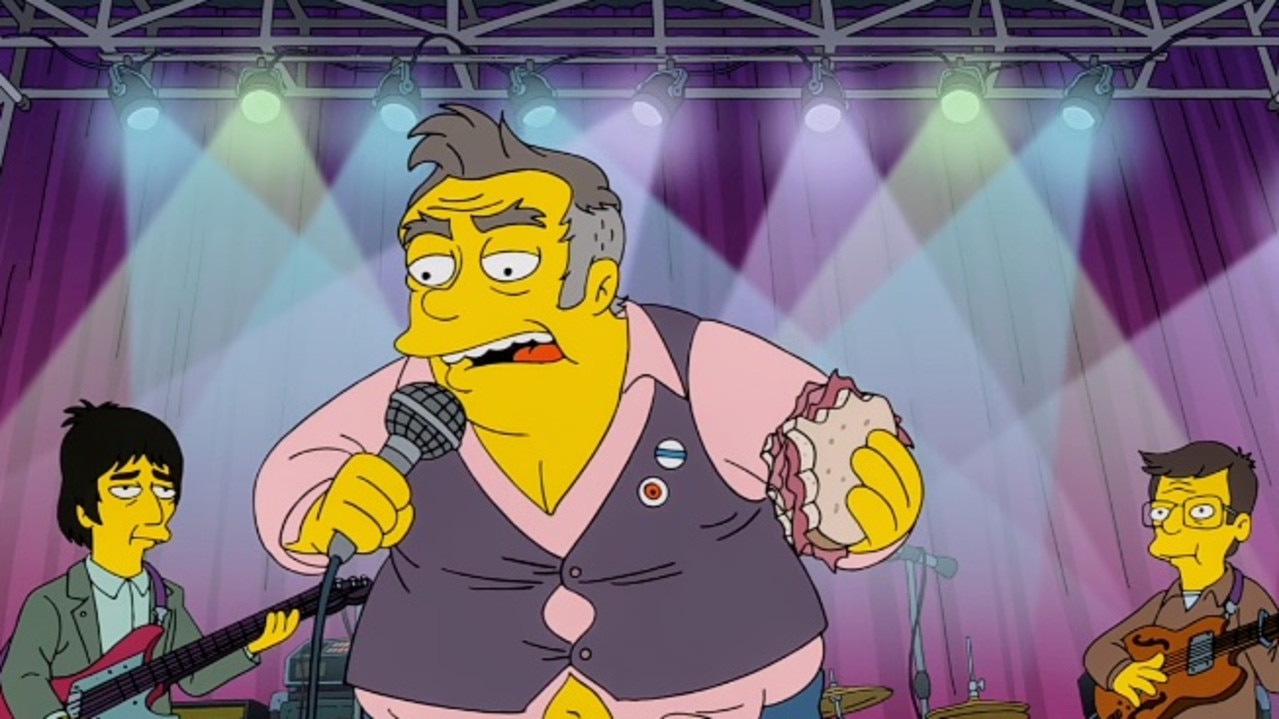Morrissey Calls Out The Simpsons For A
Morrissey Calls Out The Simpsons For A is making headlines as the famous musician and former lead singer of The Smiths, Morrissey, has accused the long-running animated show of character assassination. The controversy stems from a recent episode of The Simpsons, which poked fun at Morrissey's personal and political views. The singer took to social media to express his disapproval, leading to a public feud between him and the show's creators.
As a beloved and influential figure in the music industry, Morrissey's outspoken nature has often landed him in hot water. However, his latest clash with The Simpsons has sparked a debate about the line between satire and defamation. With fans and critics divided, the feud raises questions about artistic expression, freedom of speech, and the power of popular media to shape public perception.
In this article, we'll delve into the details of the controversy, explore Morrissey's history and impact on the music industry, and examine the broader implications of his feud with The Simpsons. From the roots of the conflict to the broader societal implications, we'll unpack the drama surrounding Morrissey Calls Out The Simpsons For A and its significance in the cultural landscape.
- Butch Patrick Net Worth Celebrity Net Worth
- Does Phaedra Parks Own A Funeral Home
- Astrology Birth Chart Of Matthew Sturniolo Tiktok
- Kyle Brown Wife Megan And Four Kids
- Kevin Kline Bio Age Net Worth Wife
Who is Morrissey?
Morrissey, born Steven Patrick Morrissey, is an English singer, songwriter, and author who rose to fame as the lead vocalist of the iconic band The Smiths. Known for his distinctive voice and introspective lyrics, Morrissey became a defining figure in the alternative rock music scene of the 1980s. His enigmatic persona and unapologetic views on animal rights, politics, and society have cemented his status as a polarizing yet influential artist.
Personal Details
| Name | Steven Patrick Morrissey |
|---|---|
| Birthdate | May 22, 1959 |
| Birthplace | Davyhulme, Lancashire, England |
| Occupation | Singer, Songwriter, Author |
Impact on Music
Morrissey's contributions to music extend beyond his work with The Smiths. As a solo artist, he has continued to release critically acclaimed albums that showcase his lyrical prowess and distinctive musical style. His influence on subsequent generations of musicians is undeniable, with many citing him as a source of inspiration for their own artistic endeavors. Despite the controversies that have surrounded him, Morrissey's impact on the music industry remains a significant part of his legacy.
What Led to the Feud?
The feud between Morrissey and The Simpsons began when the show aired an episode titled "Panic on the Streets of Springfield," which featured a parody of Morrissey in the form of a character named Quilloughby. The portrayal of Quilloughby drew criticism from Morrissey, who took issue with the character's depiction as a xenophobic and overweight has-been rock star.
- A Glance At Ayana Fite Net Worth
- Joe Hill Is In Serious Trouble On
- Rapper Lloyd Is A Father Of Two
- Is Wade Eastwood Related To Clint Eastwood
- Where To Find All The Princess Quest
Character Assassination?
Many fans and supporters of Morrissey argue that The Simpsons crossed a line by portraying him in a manner that they believe amounted to character assassination. The controversy has sparked debates about the ethical boundaries of satire and the potential impact of such portrayals on an artist's public image and reputation.
Freedom of Artistic Expression
On the other hand, defenders of The Simpsons contend that the show has a long history of lampooning public figures and cultural icons. They argue that the portrayal of Quilloughby was consistent with the show's satirical approach, and that Morrissey's reaction reflects a lack of tolerance for criticism and parody.
The Power of Popular Media
At the heart of the controversy is the broader issue of the influence wielded by popular media. The Simpsons, as a cultural phenomenon with a global reach, has the power to shape public perception and attitudes. The clash between Morrissey and the show highlights the potential consequences of media representations and the responsibilities that come with wielding such influence.
Public Perception and Impact
The feud has ignited discussions about the ways in which popular media can impact public perception of public figures and the potential ramifications for their careers and legacies. It raises questions about the boundaries of artistic freedom, the responsibilities of creators, and the role of the audience in interpreting and engaging with satire.
Repercussions and Reflection
As the controversy continues to unfold, it prompts reflection on the broader societal impact of conflicts between artists and popular media. The aftermath of Morrissey Calls Out The Simpsons For A will likely prompt ongoing conversations about the power dynamics at play, the ethical considerations of satire, and the enduring influence of cultural touchstones like The Simpsons.
- Few Untold Truth About Masters Of Flip
- Heidi Russo Bio Who Is Colin Kaepernick
- Who Is Kevin Bacon S Son Travis
- Who Is Rogel Lazaro Aguilera Mederos Wife
- Sharon Case Net Worth Husband Married Children

Morrissey blasted for overreaction to Simpsons parody Daily Telegraph

Morrissey'den kendisiyle ilgili parodi bölümü çeken The Simpsons'a

Morrissey calls out ‘The Simpsons’ for ‘harshly hateful’ parody in